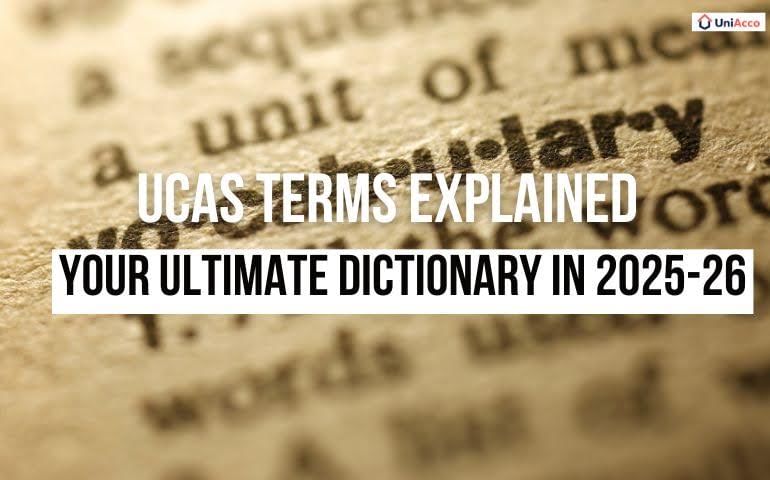You’ll hear a lot about student life in the UK, how to find student accommodation, open a bank account, or get cheap groceries. But very few talk about this: what are utility bills in the UK and how much will you end up paying every month?
You need to know that it’s not just your rent. There’s gas, electricity, water, broadband, and council tax. Some are fixed. Some fluctuate. And if you don’t budget right, you’ll feel the pinch before the semester even kicks off.
This blog is your pre-arrival reality check—what’s included, what’s extra, and how to plan like someone who’s already lived through it.
What Are Utility Bills In The UK?
Utility bills in the UK are a non-negotiable budget component. These are the essential services you’ll pay for on top of your rent every single month.
Here’s what typically counts as a utility bill in the UK:
- Electricity – You’ll need this for lighting, charging devices, and most kitchen appliances. Costs can rise during winter if you use electric heating.
- Gas – Powers central heating and hot water in many homes. If your heating is electric, you might not pay a gas bill at all.
- Water – Charged by either a fixed rate or based on a water meter. Covers water supply and sewage services. Water bills are usually paid every 6 months, but monthly instalments are also common.
- Broadband and TV Licence – The Internet is essential for studying, streaming, and staying in touch with family. However, you must pay for a TV licence if you watch live TV or BBC iPlayer.
- Council Tax – Charged by the local council to fund public services like waste collection and street lighting. Full-time students are usually exempt, but you must apply for the exemption. If you live with non-students, you might still owe a portion.
- Optional Bills – Some students also pay for contents insurance, mobile plans, or streaming services. These aren’t “utility bills” in the strict sense but still add to your monthly spend.
With UniAcco, your student accommodation in the UK comes with most utility bills included, so you can avoid the hassle of managing multiple payments.
What Counts as a Utility Bill in the UK?
Before you plan your monthly budget, it’s worth knowing what a utility bill is in the UK. Most bills have two main parts: a fixed charge and a standing charge.
| Charge Type | Description | Examples |
| Fixed Charges | A set fee paid regularly for access to a utility service, regardless of usage. | Infrastructure maintenance Billing operations and administrative costs |
| Standing Charges | A daily or monthly flat fee added to your bill to cover basic operational costs. | Meter readings Customer service support Service setup and maintenance |
| Usage-Based Charges | Costs based on the amount of utility consumed (e.g., electricity, gas, or water). | Electricity (per kWh consumed) Gas (per cubic metre or kWh) Water (per litre or cubic metre) |
What Are The Average Utility Bills In The UK?
The average monthly utility bill in the UK varies depending on several factors. In 2022, the average annual energy bill for a typical household, covering both gas and electricity, was around £2,500. This breaks down to roughly £200 per month.
However, these costs can fluctuate based on factors such as:
- Property type:
The type of property you live in plays a significant role in determining your utility costs. Larger properties, especially detached houses, tend to have higher gas and electricity bills. The more space you need to heat or cool, the more energy it takes. Your bills might be more manageable if you’re staying in a flat or a smaller shared space.
- Location:
Your location within the UK also affects the cost of utilities. Colder areas, particularly in the north, require more heating during the winter months, which drives up the average gas bill in the UK. In contrast, areas with milder climates might see lower costs, especially for heating.
- Heating system and energy efficiency:
Older properties often come with less efficient heating systems. Homes with single glazing, poor insulation, or outdated boilers can increase your average electricity bill in the UK. On the other hand, newer, well-insulated homes or those equipped with energy-efficient systems can keep your bills more predictable and manageable.
- Number of occupants:
Utility costs rise with the number of people in a household. More occupants typically mean more energy usage—whether that’s for heating, cooling, cooking, or using electronics. It’s important to consider how many people will share your living space and how this affects your overall utility bills in the UK.
- Personal usage:
Your personal habits are a major factor in determining how much you pay. Do you keep the heating on all day, or do you make an effort to turn off lights when not in use? Simple actions like turning off unnecessary appliances, using energy-efficient lighting, and switching off electronics when not in use can make a real difference to your average utility bill in the UK.
The average gas bill in the UK and average electricity bill in the UK will depend on how much you use, but you can generally expect these costs to make up a substantial portion of your monthly expenses.
Additionally, government initiatives like the £400 discount can lower energy bills, bringing the annual total down to £2,100 for eligible households. This is an important consideration when planning your budget.
Key Utility Bills You’ll Encounter In The UK
When you move to the UK as a student, managing your utility bills in the UK is crucial for budgeting effectively. Let’s take a detailed look at the common types of utility bills you’ll likely face:
- Gas Bills
- How it works: Gas bills depend on your monthly usage.
- Tracking: You can track usage manually with a meter reading or through an electronic meter that sends data automatically.
- Average cost: The average gas bill in the UK can vary, but recent price hikes have made it even more important to monitor your consumption.
- Tip: Set up automatic monthly payments with your provider to avoid late fees.
- Electricity Bills
- How it works: Based on the electricity you use in your home.
- Ways to save: Turn off appliances when not in use and opt for energy-efficient appliances.
- Tracking: Use a smart meter to keep tabs on your electricity usage and avoid overpaying.
- Average cost: Depending on your usage and the type of property, you can expect to pay between £75 and £150 annually for electricity.
- Water Bills
- How it works: Water providers are region-dependent. The water business is privatised in England and Wales, while in Scotland and Northern Ireland, it’s publicly owned.
- Quality: Most people drink tap water, although filters are common in areas with harder water, such as London.
- Average cost: The average utility bill in the UK for water is about £415 per year, or just under £35 per month.
- Tip: Costs may vary depending on your location and type of home.
- Council Tax Bills
- How it works: This is a property tax based on the value of your home and the number of residents.
- Who pays: Students are usually exempt, but this varies by area and household situation.
- Average cost: The amount varies depending on your local council and the area you live in. In expensive cities like London, the tax is higher.
- TV Licence Bill
- How it works: Required for anyone who watches live TV or uses iPlayer, even for streaming services like Netflix or Amazon Prime.
- Cost breakdown:
- £150 for up to two rooms.
- £174 for three rooms (including one portable device).
- £210 for four rooms (including two portable devices).
- Tip: Check whether your TV viewing habits require a licence to avoid legal trouble.
Cost Breakdown of Utility Bills In The UK
When you settle into the UK, understanding utility bills in the UK is essential for budgeting effectively. Here’s a clear breakdown of what makes up your energy bill:
- Wholesale Energy Prices
This is a major contributor to your gas and electricity bills, accounting for over a third of your total monthly energy cost. Wholesale prices reflect the cost of gas and electricity from suppliers, which can fluctuate based on global supply and demand. Essentially, when demand is high or energy sources become scarce, your bill can rise. Understanding this factor helps you recognise that utility prices may vary throughout the year.
- Networking Costs
Around 25% of your energy bill is spent on networking costs. These fees cover the upkeep and maintenance of the infrastructure, pipes and wires, which ensure the steady delivery of gas and electricity to your home. While you won’t see these pipes and wires, they are essential for getting energy where it needs to be. These costs can vary depending on the region, with some areas facing higher costs due to the distance energy must travel.
- Operational Costs
The energy suppliers need to operate efficiently to provide you with reliable service, and the costs associated with this are passed on to consumers. This includes customer service, system maintenance, and the cost of managing the overall business. The money used to maintain the supply network and provide continuous support is embedded in your bill. Essentially, you’re paying for a consistent service that can be relied upon throughout your time in the UK.
- Government Energy-saving Programs
A portion of your energy bill goes toward funding government-backed energy-saving initiatives. These programs focus on improving energy efficiency and reducing the overall energy consumption of households. The government aims to reduce the UK’s carbon footprint by investing in energy-saving measures. However, these initiatives come at a cost, and some of that cost is passed on to you. So, while this helps reduce long-term energy consumption, you’re contributing to the upfront funding of these programs.
- Additional Charges
Finally, additional charges can affect your average electricity bill in the UK. These include VAT (Value Added Tax) and any miscellaneous fees based on your personal usage. Your energy provider might also charge specific services, such as a fixed monthly payment for energy usage, or even penalties if you exceed the agreed usage. Understanding these additional charges can help you anticipate any unexpected costs that might arise from your energy usage patterns.
Understanding the breakdown of your average utility bill in the UK helps you make informed decisions about energy consumption and explore cost-saving measures. This helps manage your monthly budget and reduce unnecessary bill expenditures.
Smart Tips to Save on Utility Bills in the UK
As a student in the UK, managing utility bills effectively can make a significant difference in your overall budget. Here are some practical and simple ways to help reduce your average utility bill in the UK.
- Cut Down on Energy Usage
Turn off lights when you leave a room. Switch off electronics when not in use. Use energy-efficient bulbs to reduce electricity consumption.
- Choose Energy-Efficient Appliances
When buying appliances, look for energy-efficient models. Appliances with high energy efficiency ratings can significantly lower your average electricity bill in the UK.
- Invest in a Smart Thermostat
A smart thermostat allows you to control heating and cooling remotely. Adjust settings for energy efficiency, using energy only when necessary to reduce gas bills.
- Seal Gaps in Windows and Doors
Ensure there are no gaps or cracks in windows and doors. This will help keep the heat in during winter and out during summer, reducing your overall energy consumption.
- Make the Most of Natural Light
Open curtains and blinds during the day to let in natural light. Reducing the need for artificial lighting can help you save on electricity costs.
- Share Utility Costs with Flatmates
If you’re living with others, consider splitting the utility bills. This reduces the individual cost of utilities and encourages everyone to be mindful of their energy consumption.
These simple tips will significantly reduce your utility bills in the UK, helping you manage your expenses better while studying.
Once you’re aware of what to expect with utility bills in the UK, managing them will be a breeze. It’s all about staying informed, saving where you can, and budgeting right.
Whether you need student accommodation in London or want to check out student housing in Manchester, UniAcco has the perfect place waiting for you. Find your ideal student accommodation in the UK today!
FAQs
1. How much are utility bills in the UK each month?
On average, monthly utility bills in the UK for gas and electricity cost around £111.6 in 2021. This is broken down to £47.90 for gas and £63.70 for electricity. Annually, this adds up to approximately £1,339 or £334.80 per quarter. However, it’s important to note that these figures have increased recently, so current utility costs may be higher.
2. What are the typical monthly bills in the UK?
In the UK, alongside rent, the average utility bills include council tax (typically £163.83 per month), water bills (around £33.50), and an average power bill of £96.17. These numbers can vary depending on your location, lifestyle, and accommodation size.
3. How do utility bills work in the UK?
In the UK, utility bills are generally based on your energy usage. Your energy provider will calculate your bills based on meter readings, with the cost for gas and electricity depending on how much you consume. Additionally, some providers offer fixed-rate plans where you pay a set amount monthly. The final bill reflects your usage and the rates set by your provider.
4. How much are utility bills for a 1-bed flat in the UK?
For a one-bedroom flat, the average utility bills (excluding rent) amount to approximately £669.26 per month. This includes the costs for gas, electricity, water, and other essentials. If you opt for a larger flat, the bills will naturally increase due to higher utility consumption. Expect your annual utility cost to be roughly £784 for a small one-bedroom property.
5. How much should I budget for utility bills in the UK as a student?
As a student in the UK, the average utility bill can vary based on location and accommodation type. On average, utility bills for students are around £100–£150 per month. It’s essential to factor in the average utility bill in the UK when planning your monthly budget, especially if you’re living in shared housing or university accommodation.
6. Are utility bills in the UK higher in winter?
Yes, utility bills in the UK tend to rise during the winter months due to increased heating usage. The average gas bill in the UK can significantly spike when temperatures drop. To avoid high winter utility bills, try using energy-efficient heating systems and consider reducing your thermostat setting when you’re not home.
Want to reduce your monthly expenses? Discover more about managing your energy costs with these articles:















0 Comments